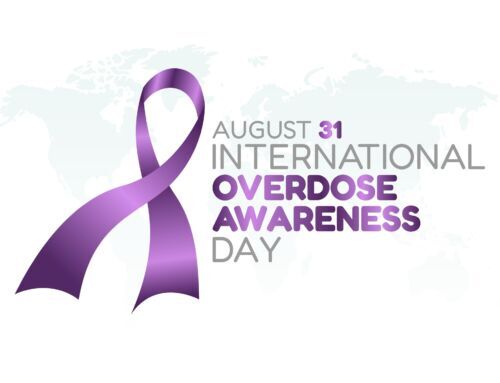Firefighters are our real-life superheroes. They rescue people from burning buildings and are among the first responders to any serious problem. Of course, you already know a firefighter will be there when a home or forest is on fire, but did you know they also show up to car accidents, natural disasters and violent community threats?
While firefighters may seem like superheroes, these incredible feats also place them at an increased risk for developing addictions or co-occurring mental health problems. But why is this, and what can be done about it? Continue reading below for five primary reasons firefighters suffer from drug or alcohol abuse.
1. Consistently Exposed to Traumatic Events
Firefighters are at a significantly increased risk of developing post-traumatic stress disorder, also known as PTSD. Although most people think of post-traumatic stress disorder as a soldier’s mental health problem, that’s far from accurate. Anyone who’s the victim of a traumatic event or who witnesses one happening can develop PTSD. The symptoms of PTSD include panic attacks, nightmares, insomnia, hypersomnia, anxiety and avoidance of things reminiscent of the experienced trauma.
Many firefighters turn to substance abuse instead of seeking help for their mental health issues to cope with these symptoms. This type of self-medication is seen more in men than women due to the stigma surrounding men and mental health disorders.
2. Work-Related Injuries
Since firefighters constantly rush into burning buildings, climb tall objects and go into unsafe situations, they often get hurt. If you received on-the-job injuries as a firefighter, you were likely prescribed pain medications to help you cope while healing. Unfortunately, while these medications can be helpful, some also carry a high risk of addiction.
Opioids, in particular, can be addictive. These include medications like morphine, hydrocodone and oxycodone. Substance abuse happens when you’re on these medications for a long time. Then, when doctors stop prescribing the medication, many people turn to street drugs like heroin to experience the same numbing effects as the original prescription.
If you’re a firefighter struggling with addiction
Call us today or verify your insurance. Our team will do the necessary research to run a no-cost, confidential approval of your specific policy so you can start treatment today.
3. Fire Station Culture
A recent study showed that fire station culture could partially be to blame for firefighters being at a greater risk for excessive alcohol consumption specifically. The study showed that binge drinking among firefighters is more common than in the general population. In addition, career firefighters surveyed reported drinking more than volunteer firefighters. However, even volunteer firefighters reported drinking more than the average population.
Although substance abuse is common among firefighters to help deal with mental health symptoms, findings showed other reasons, too. For example, drinking together was seen as a form of comradery and, in certain firehouses, was even encouraged to some degree. This culture can (and has started to) change with prevention and education efforts. However, more work still needs to be done.
4. Erratic Sleep Schedule
Firefighters often suffer from erratic sleep schedules, even more so than the general population. Since they need to respond to calls at all times of the day or night, they don’t often have a set bedtime or time to wake up. Numerous studies have shown these types of sleep schedules cause physical and mental health symptoms. For example, one study found those who had varied sleep schedules were more likely to develop metabolic disorders like diabetes.
Common mental health issues from sleep deprivation include hallucinations, paranoia and lowered control over urges. For example, you’re more prone to heavy alcohol consumption if you haven’t gotten enough sleep. Additionally, career firefighters may find different mental health symptoms occur the longer they go without regular, sufficient rest.
5. Exposure to Dangerous Situations
Dangerous situations don’t necessarily have to be traumatic to have a lasting effect on mental health issues among firefighters. The danger itself can lead to large amounts of adrenaline being released, making it hard to sleep. Some turn to substance abuse because the drug or alcohol helps them sleep. Constant exposure to danger can also wreak havoc on mental health. Substance abuse occurs to cope with mental health issues that crop up over time due to this constant exposure.
Binge drinking and drug abuse often happen among firefighters because they hope to forget or learn to live with certain situations. The numbing effects of alcohol consumption are only temporary, however. Once a person is sober, any mental health disorder or memories of traumatic calls are still there. These problems may even feel worse after being temporarily alleviated, which helps fuel the cycle of substance abuse.
Don’t go through the process of recovery alone. There are people who can help you with the struggle you’re facing. Get in touch with one today.
If you have coverage of any kind from a major insurance provider, your treatment is likely covered. We promise to keep your information confidential.
Treatment Options for Drug or Alcohol Abuse
Addiction treatment options are available for both firefighters and the general population. However, female and male firefighters should look for behavioral health treatment centers that have experience treating fire responders.
Treating Co-Occurring Disorders
If underlying mental or behavioral health conditions are the root cause of addiction, treating both conditions simultaneously is crucial. A mental health professional can provide an evaluation and create a recovery program that improves overall mental health. Co-occurring disorders are common among addicts because substance abuse issues often develop as a means of self-medication. Countless firefighters and other emergency responders can benefit from these services.
Detox
Detox is the initial process of getting sober by allowing all traces of the abused substance to leave your system. During detox, withdrawal symptoms are likely to happen. They may include mood disturbances, digestive issues, sleep problems, sweating and more. In rare instances, emergency medical services may be needed during this first recovery step. For this reason, it’s highly suggested you detox in a facility offering 24/7 assistance from licensed medical professionals.
Outpatient Rehab
Outpatient rehab can be used as a stepping stone after inpatient rehab or by those who can’t take time away from their hectic schedules. Outpatient rehab programs require meetings of about an hour, one to three times a week. The length of treatment depends on the individual but will likely continue for several weeks.
Ongoing Support
There’s no cure for addiction. It’s a lifelong purposeful choice to stay sober, so it’s crucial to have ongoing support after completing other, more intensive programs. Depending on your area, there may be groups to connect with fellow firefighters battling addiction or mental health problems like acute stress disorder. Narcotics Anonymous and Alcoholics Anonymous are also excellent support groups moving forward. Tapping into existing networks like friends and family is also essential.
Frequently Asked Questions
It’s normal to have questions. Many firefighters have questions about addiction, mental health and rehabilitation services. Below you’ll find answers to some of the most common questions first responders have.
Health insurance companies are required to provide at least partial coverage for mental health-related needs. This does include addiction treatment services. However, the type of services covered and how much health insurance will pay varies significantly from one company to another.
If you’re not sure of your insurance benefits related to addiction treatment services, call us today at (833) 272-6246 and one of our customer representatives can help you verify your benefits. Alternatively, you can reach out to your insurance company for more information.
Sometimes there are no apparent signs you or someone else has an addiction, such as in the case of functioning alcoholics. However, a few signs that you or someone else may have an addiction to drugs or alcohol include:
- Strong desire to drink or take an illicit substance
- Problems with relationships or work
- Mood swings, especially when a particular substance isn’t readily available
- Drinking or taking drugs in dangerous situations, such as before driving
- Financial problems, including borrowing money from loved ones frequently
- Physical health problems, including headaches, nose bleeds and digestive issues
- Changes in personality or daily routines
- Participating in risky behaviors
- Poor hygiene
Addiction is a lifelong disease that takes continuous efforts to overcome. However, normal inpatient or outpatient programs last a minimum of one month. These programs can last up to (or exceed) three months, depending on the individual’s unique needs. Many people spend one to three months in an inpatient or partial hospitalization program before spending an equal amount of time in an outpatient program.
Emergency responders are prone to numerous mental health conditions. Since each person handles stress differently, you could have one or more of any combination of disorders. However, a few of the most common mental health conditions you might experience as a firefighter include:
- Acute stress disorder
- Post-traumatic stress disorder
- Generalized anxiety disorder
- Panic disorder
- Depression
- Social anxiety
- Specific phobias
- Various personality disorders
The signs and symptoms that you or a loved one may have one of these mental health disorders include:
- Excessive drinking or drug abuse (as a form of self-medication)
- Panic attacks
- Paranoia
- Nightmares or night terrors
- Avoidance of a specific situation or place
- Severe mood swings
- Feelings of sadness, anger, depression or irritability
- Thoughts of suicide or self-harm
- Flashbacks
- Hypervigilance
- Sleeping too much or too little
- Difficulty focusing
- Digestive issues without a known medical cause (nausea, vomiting, diarrhea, reflux)
- Feelings of hopelessness or emptiness
- Lack of motivation
- Loss of interest in hobbies and other things that once brought you joy
Although firefighters and other emergency responders often need the most help, they seek it less frequently than the general population. The reason behind this is complicated. However, people in this profession are so used to helping others that they hesitate to seek help for themselves. If they can’t continue helping people, who will? Additionally, some stigma exists around both male and female firefighters seeking mental help, with men being more stigmatized than women. Although not all firehouses carry out mental health stigmas, many of them still do.
Greenbranch Recovery Is Here To Help
Greenbranch Recovery is here to help first responders and others overcome addiction and manage their co-occurring mental health issues. Our facility is conveniently located in Egg Harbor Township, NJ, only a short drive from the Jersey Shore and most major cities in the southern portion of the state.
If you or a loved one needs addiction treatment services, call us today at (833) 272-6246. You can also fill out our online contact form and a qualified admissions representative will get back to you as soon as possible.




